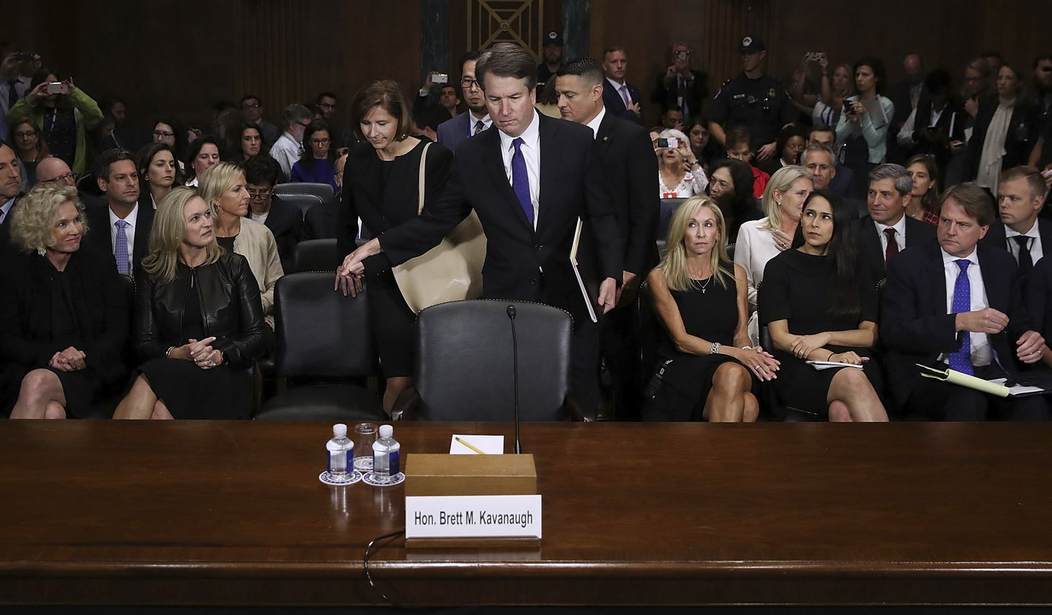As the Senate prepares to vote Saturday on the nomination of Judge Brett Kavanaugh to fill the Supreme Court seat left vacant when Justice Anthony Kennedy retired in July, rumors of a “blue wave,” percolating for months leading up to the November midterm election, seem to have lost their surge.
Word began to filter out from Capitol Hill that the FBI investigation Senate Judiciary Committee Democrats had demanded to investigate Christine Blasey Ford’s accusations of sexual impropriety against her nearly 40 years ago had corroborated none of her claims. On Friday, swing vote GOP Senators like Jeff Flake of Arizona and Susan Collins of Maine had voted for cloture on the Kavanaugh hearing and were leaning toward confirmation.
Democrats seemed determined to keep the question of Kavanaugh in the news cycle, despite the reality that the vote was likely to go his way. Many wondered if it was simply to have a platform issue to promote during the November midterms. If that was the goal, it may not have worked. NPR reported Wedesday that the fabled “blue wave” might not be as large as Democrats had hoped.
Just over a month away from critical elections across the country, the wide Democratic enthusiasm advantage that has defined the 2018 campaign up to this point has disappeared, according to a new NPR/PBS NewsHour/Marist poll.
In July, there was a 10-point gap between the number of Democrats and Republicans saying the November elections were "very important." Now, that is down to 2 points, a statistical tie.
Notably, the Marist poll showed that while support for Democrat candidates had dropped, the bigger change seemed to be that more Republican voters had decided that the midterm election held a great deal of import.
Recommended
"The result of hearings, at least in the short run, is the Republican base was awakened," Lee Miringoff, director of the Marist Institute for Public Opinion, which conducted the poll, told NPR. Democrats need to net 23 seats to win the House of Representatives back from the GOP. Miringoff said base voters from both parties will play a key role, and they tend to help Republicans win elections better than Democrats.
The Weekly Standard, however, in a report Thursday, indicated an unwillingness to prognosticate on whether or not the bitter fight over Kavanaugh will help Republicans in the mid-terms.
Examining several non-partisan polls that questioned participants about their support of the SCOTUS candidate, WS concluded that support for Kavanaugh hadn’t changed very much — but opposition to him had increased.
Taken together, these polls suggest that support for Kavanaugh hasn’t moved much, but that opposition may have increased.
I would be cautious about any attempt to simply tag Kavanaugh’s recent hearing (or his nomination to the court more generally) as a “win” or a “plus” for Republicans or Democrats in the upcoming midterms.
However, what both outlets agree on is that turnout is key. Miringoff suggests that when issues that appeal to the base play an outsized role (like the fight over Kavanaugh), GOP candidates tend to do better in elections, perhaps indicating that Democrats just stay home.
The WS promotes a similar idea when it says mid-term elections “involve multiple interlocking parts (e.g. how bad turnout is for the president’s party, how good it is for the party that doesn’t control the White House, how much or little a specific issue moves public opinion beyond where it already is).”
Both publications seem to be saying the same thing: voters are already decided on the issue of Kavanaugh (and likely were before any hearings or investigations) straight down party lines. So the deciding factor is going to be which party can get people to the polls.

























Join the conversation as a VIP Member